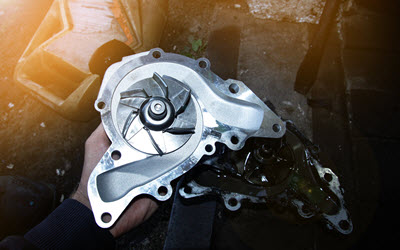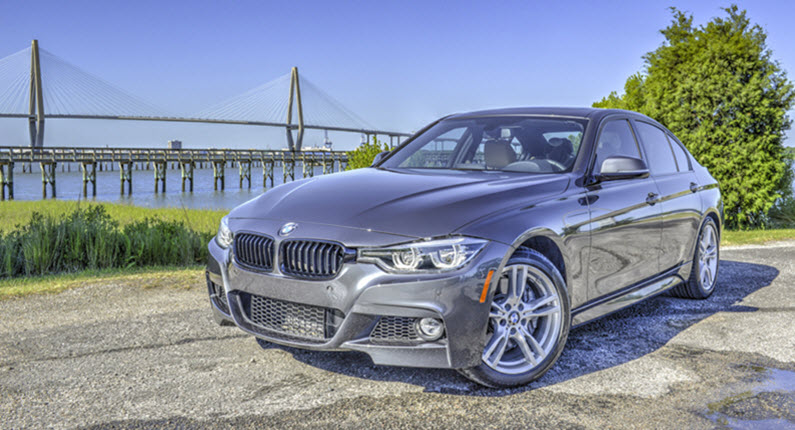BMW is a luxury car brand known for its high-performance engines, sleek designs, and innovative technology. However, like any other car, BMWs can develop problems, and one of the most common issues is overheating. Overheating can cause significant damage to your car’s engine, so it’s essential to know what to do when your BMW starts to overheat.
Why Do BMWs Overheat?
Overheating can occur for a variety of reasons. In a BMW, some of the most common causes of overheating are:
- Coolant Leaks: Coolant is the fluid that helps to keep the engine cool. If there’s a leak in the coolant system, the engine may overheat.
- Radiator Issues: The radiator is responsible for cooling the engine. If the radiator isn’t working correctly, the engine may overheat.
- Thermostat Issues: The thermostat regulates the engine’s temperature. If the thermostat is faulty, it may cause the engine to overheat.
- Water Pump Failure: The water pump circulates coolant throughout the engine. If the water pump fails, the engine may overheat.
What to Do When Your BMW Overheats
If your BMW starts to overheat, it’s important to take action immediately. Here’s what to do:
- Turn Off the AC: The air conditioning system generates heat, which can add to the engine’s heat load. Turning off the AC can help to reduce the engine’s temperature.
- Turn on the Heater: The heater can help to draw heat away from the engine. Turn on the heater to its maximum setting to help reduce the engine’s temperature.
- Pull Over: If you’re driving, pull over to a safe location as soon as possible. Stop the car and turn off the engine.
- Let the Engine Cool: Wait for the engine to cool down before opening the hood. This can take anywhere from 30 minutes to an hour.
- Check the Coolant Level: Once the engine has cooled down, check the coolant level. If the coolant level is low, add more coolant. If you’re not sure how to do this, consult your owner’s manual.
- Check for Coolant Leaks: Look for any signs of coolant leaks, such as puddles of coolant under the car or steam coming from the engine. If you find a leak, it’s important to have it repaired as soon as possible.
- Check the Radiator: Check the radiator for any signs of damage or blockages. If the radiator is damaged or blocked, it may need to be replaced.
- Check the Thermostat: If the thermostat is faulty, it may need to be replaced.
- Check the Water Pump: If the water pump has failed, it may need to be replaced.
Preventing Overheating in Your BMW
Preventing overheating in your BMW is essential to keeping your engine healthy and prolonging the life of your car. Here are some tips for preventing overheating:
- Maintain Proper Coolant Levels: Check your coolant levels regularly and top up as needed. Make sure to use the correct type of coolant for your BMW.
- Check Hoses and Belts: Check your hoses and belts regularly for signs of wear or damage. If you notice any problems, have them repaired or replaced as soon as possible.
- Regular Maintenance: Regular maintenance is essential to keeping your BMW running smoothly. Make sure to follow the manufacturer’s recommended maintenance schedule and have your car serviced by a qualified technician.
- Avoid Heavy Loads: Avoid carrying heavy loads in your BMW, as this can increase the engine’s workload and lead to overheating. If you need to carry heavy loads, make sure to distribute the weight evenly and avoid overloading the car.
- Check the Radiator: Check the radiator regularly for any signs of damage or blockages. If you notice any problems, have them repaired or replaced as soon as possible.
- Avoid Extreme Conditions: Avoid driving your BMW in extreme conditions, such as very hot or very cold weather. If you must drive in extreme conditions, take extra precautions to keep your engine cool.
- Monitor the Temperature Gauge: Keep an eye on the temperature gauge in your BMW’s dashboard. If the gauge shows that the engine is starting to overheat, take action immediately to prevent damage.
Bring Your Overheating BMW to Auto Assets
When it comes to your BMW, ensuring it’s  running smoothly is important. And while there are many reasons your car might overheat, one thing is for sure: you want to entrust it to experts who know how to handle the situation.
running smoothly is important. And while there are many reasons your car might overheat, one thing is for sure: you want to entrust it to experts who know how to handle the situation.
That’s where Auto Assets comes in. Serving a range of areas in Ohio, our team of specialists is equipped to handle any issues your BMW might be facing. Not only that, but we’re also dedicated to providing you with information that can help you keep your car in top shape for longer. Trust us with your BMW and we’ll make sure it gets the care it deserves.
* BMW 340i Car image credit goes to: stonena7.
 356 W Olentangy St, Powell, OH 43065, United States
356 W Olentangy St, Powell, OH 43065, United States 614-793-1050
614-793-1050 Weekdays 8am to 6pm, Saturday 9am to 4pm, Closed Sunday
Weekdays 8am to 6pm, Saturday 9am to 4pm, Closed Sunday 356 W Olentangy St, Powell, OH 43065
356 W Olentangy St, Powell, OH 43065





